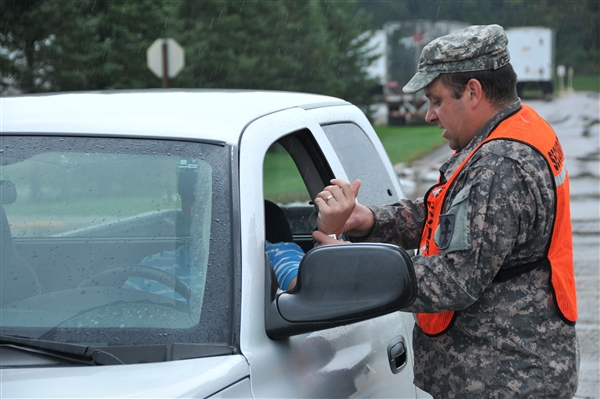VIRGINIA BEACH, Va. — As U.S. forces increasingly work as part of multinational coalitions, they are part of a cultural shift toward more information sharing and working more closely with allied troops, military leaders gathered here for a conference on joint warfighting said.
Marine Corps Gen. James N. Mattis, commander of U.S. Joint Forces Command, which co-hosted the 2010 Joint Warfighting Conference, said the responsibility will fall on young officers to build trust across the ranks to improve information sharing.
“In this age, I don’t care how technologically or operationally brilliant you are; if you cannot build trust [across various multiple participants], you might as well go home,” he said.
Air Force Maj. Gen. David M. Edgington, Joint Forces Command’s chief of staff, said a cultural change is in the works to change the information-sharing paradigm from “need-to-know” to “will-to-share.”
The United States does not have the only military reluctant to share, Edgington acknowledged, but it bears more of the burden as a leader in coalition operations. “We have the technology and the capability to gather more information and distribute it than other countries,” he said.
Sometimes there are legitimate reasons to not share information, particularly when it involves intelligence that could put troops at risk, Edgington said. But often, he added, information isn’t shared due only to unnecessary bureaucratic reasons.
Sharing information with coalition forces helps U.S. troops by relieving some of their burden from the fight, Edgington said. To those reluctant to share, he had a simple message: “Get over it, guys. They’re going to be fighting with us.”
Edgington conceded that sharing information increases the risk of potentially harmful information getting into the wrong hands. “Yes, it’s a risk,” he said. “But it’s all about risk and it’s a risk to the other forces, too.”
The military leaders also spoke of the need for “interoperability,” the ability of coalition forces to work interchangeably with the same equipment and doctrine. The shift will be a big change for senior officers, Edgington said. “Anybody at the rank of colonel or above — we’ve all grown up in this where the U.S. is leap years ahead, and we can’t afford to do that any more.”
Edgington noted, however, that many countries followed the United States in buying F‑15 aircraft, and many also joined in the early stages of purchasing the joint strike fighter aircraft, which is still being developed.
French Air Force Gen. Stephane Abrial, NATO supreme allied commander for transformation, spoke of the importance of strengthening the alliance for the future. Building trust that leads to information sharing and improved interoperability of equipment is critical, he said.
The ability for all coalition nations to operate interchangeably “should be hardwired into our DNA,” Abrial said. An increasing gap between U.S. military equipment and technology and that of its allies is not being closed quickly enough, he said, and NATO is cooperating with the defense industry to close that gap.
Building trust also should decrease the number of “caveats” or restrictions, some nations insist upon when agreeing to be part of coalition operations, Abrial noted. Such restrictions can restrict troops’ involvement in certain operations or prevent information sharing, especially intelligence, he said.
Source:
U.S. Department of Defense
Office of the Assistant Secretary of Defense (Public Affairs)

 von
von 